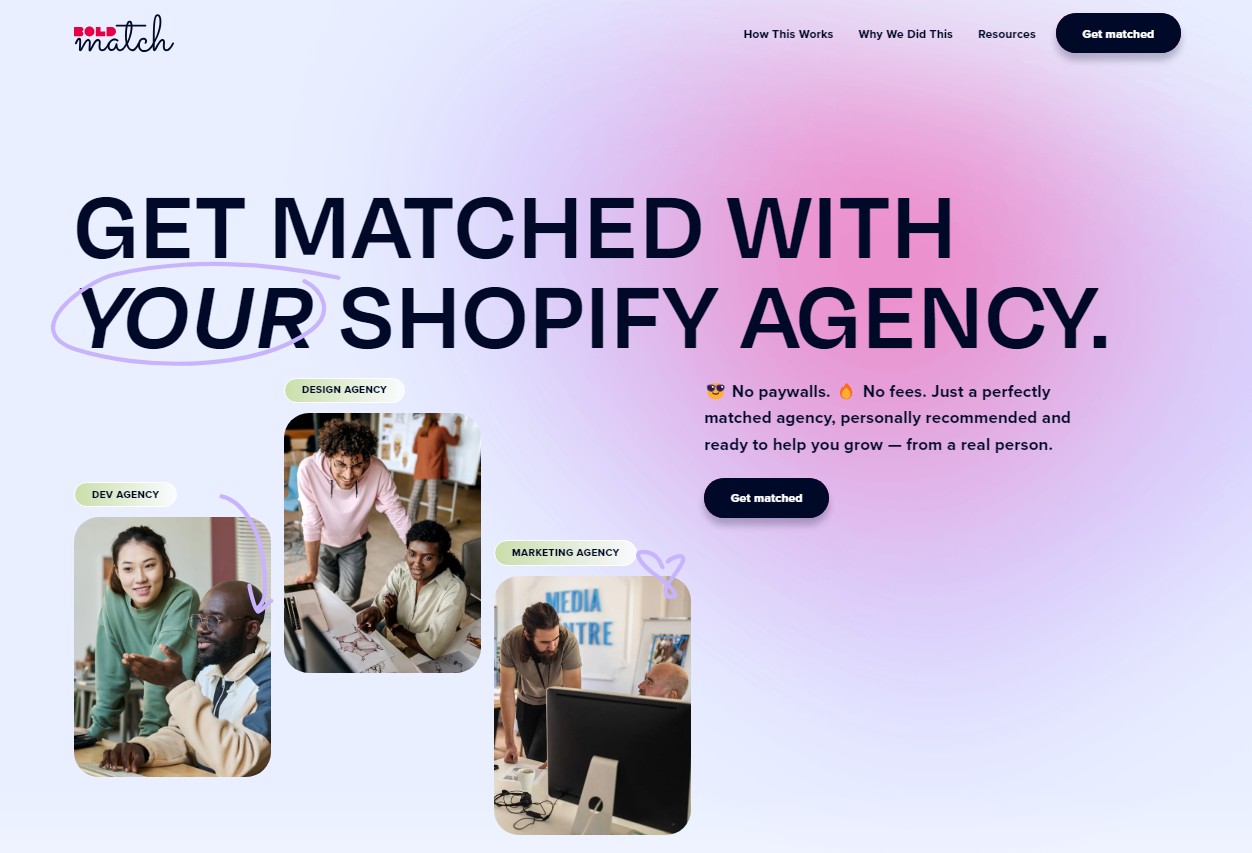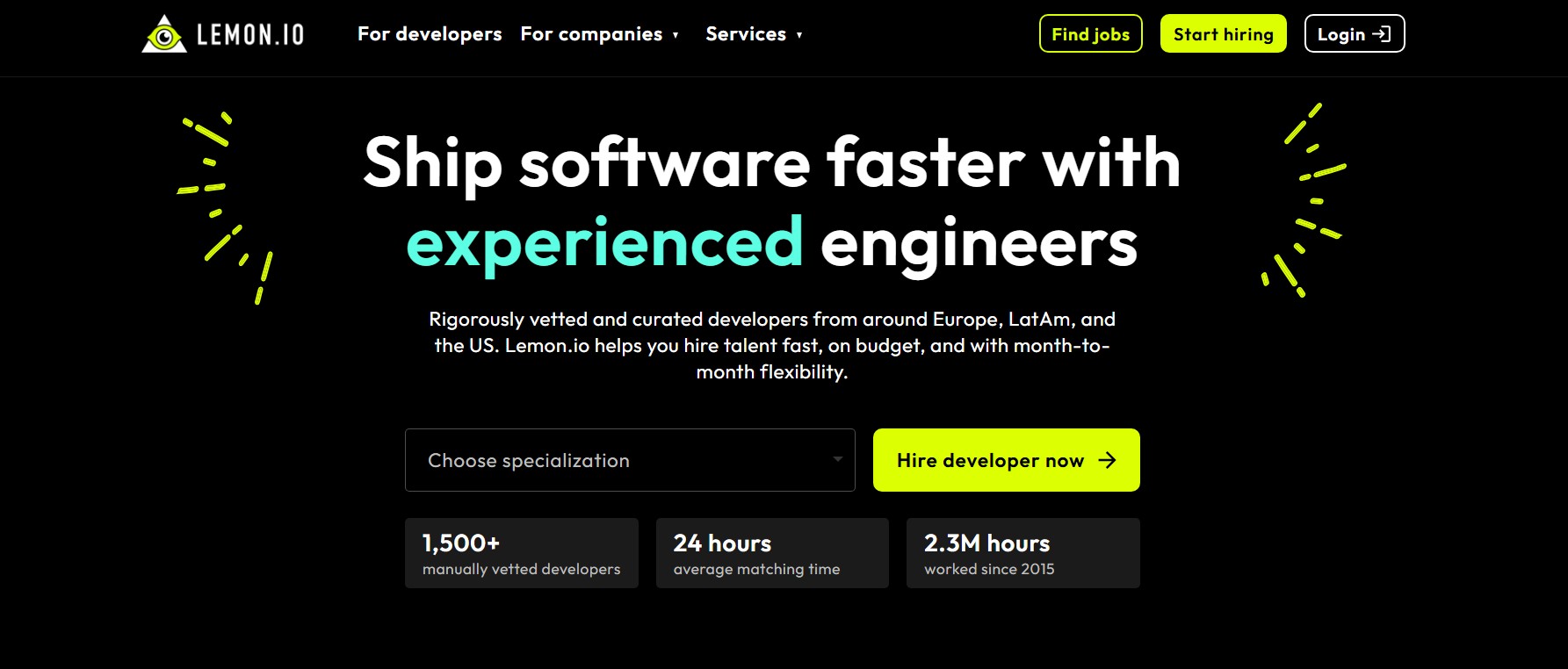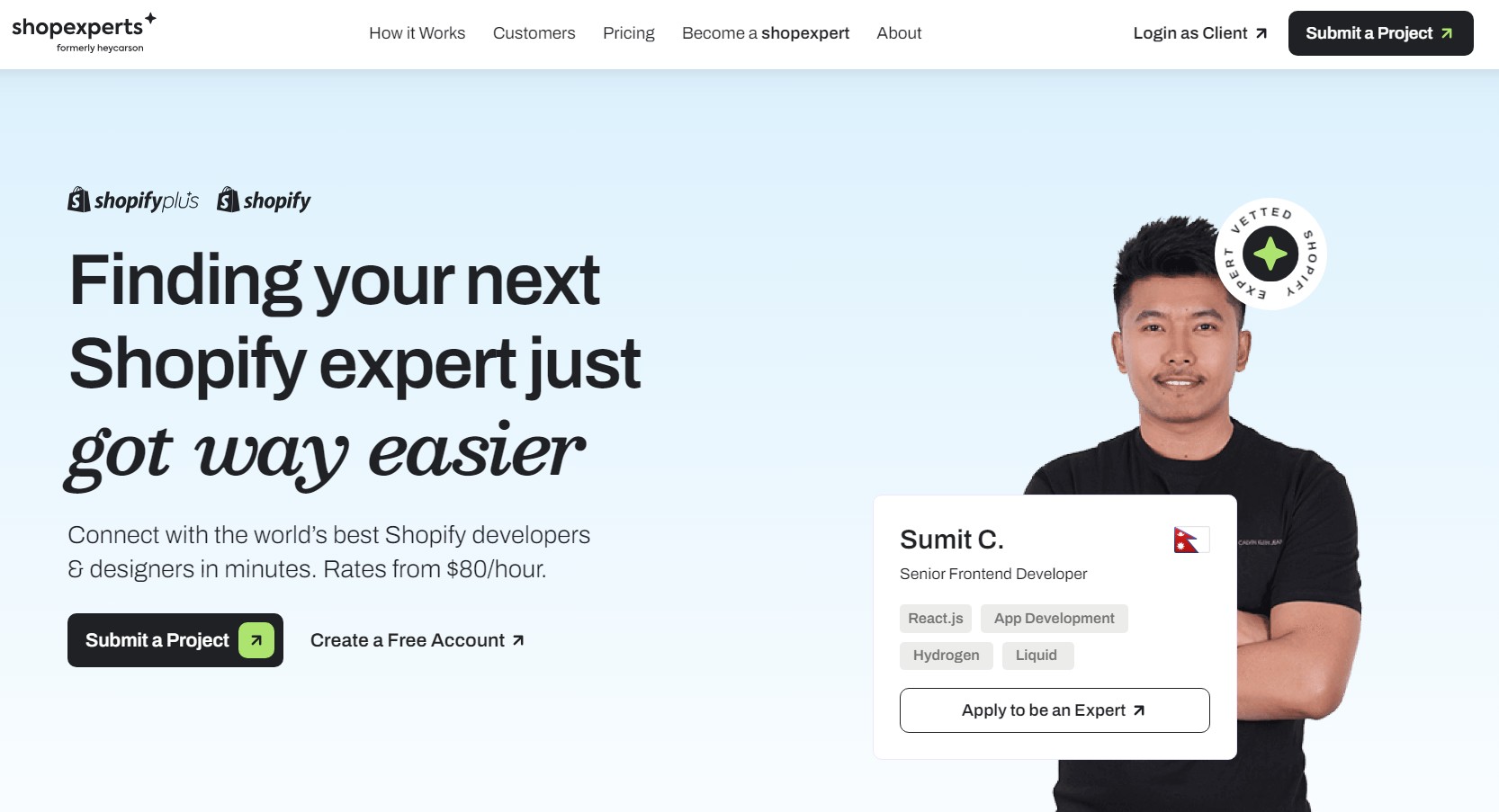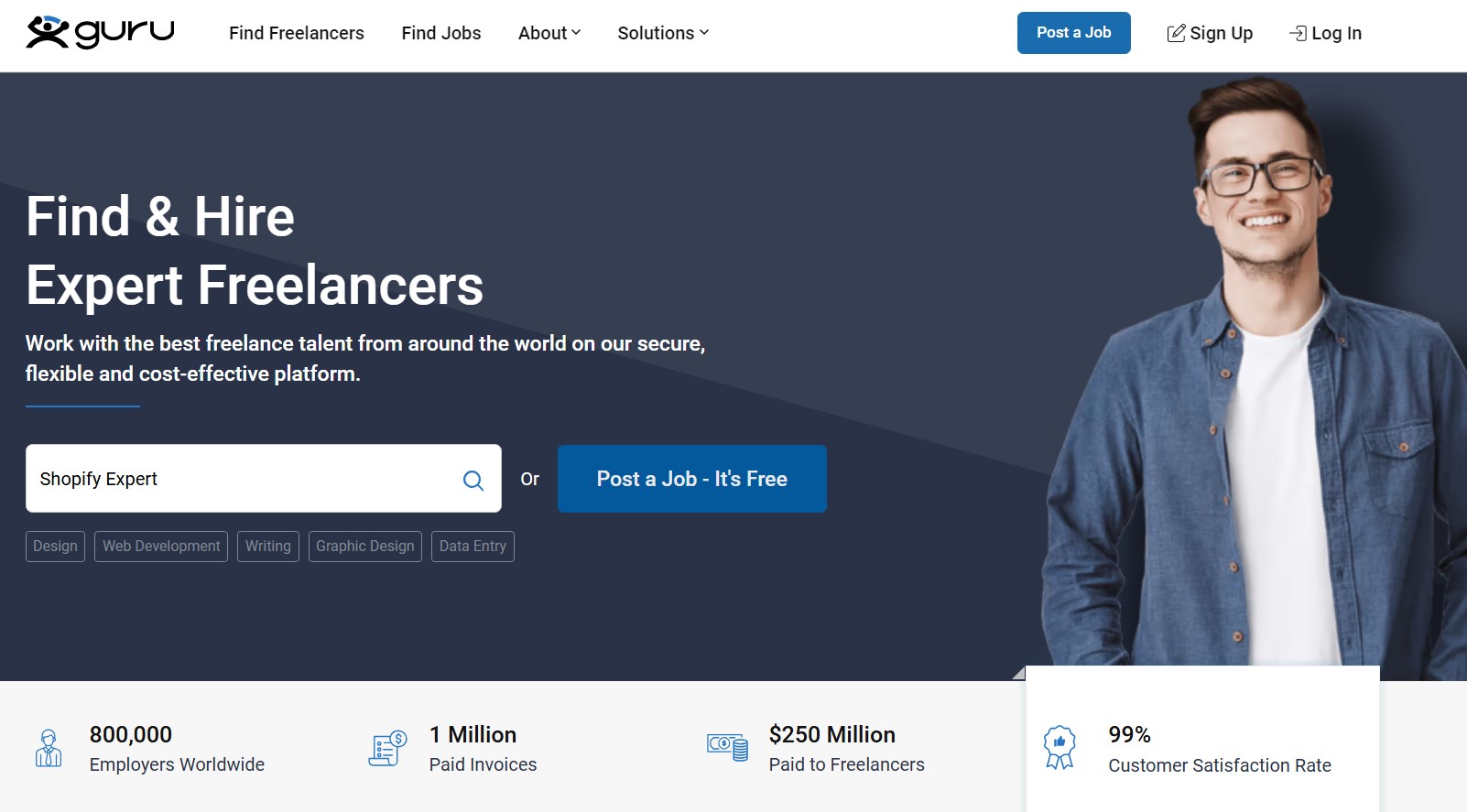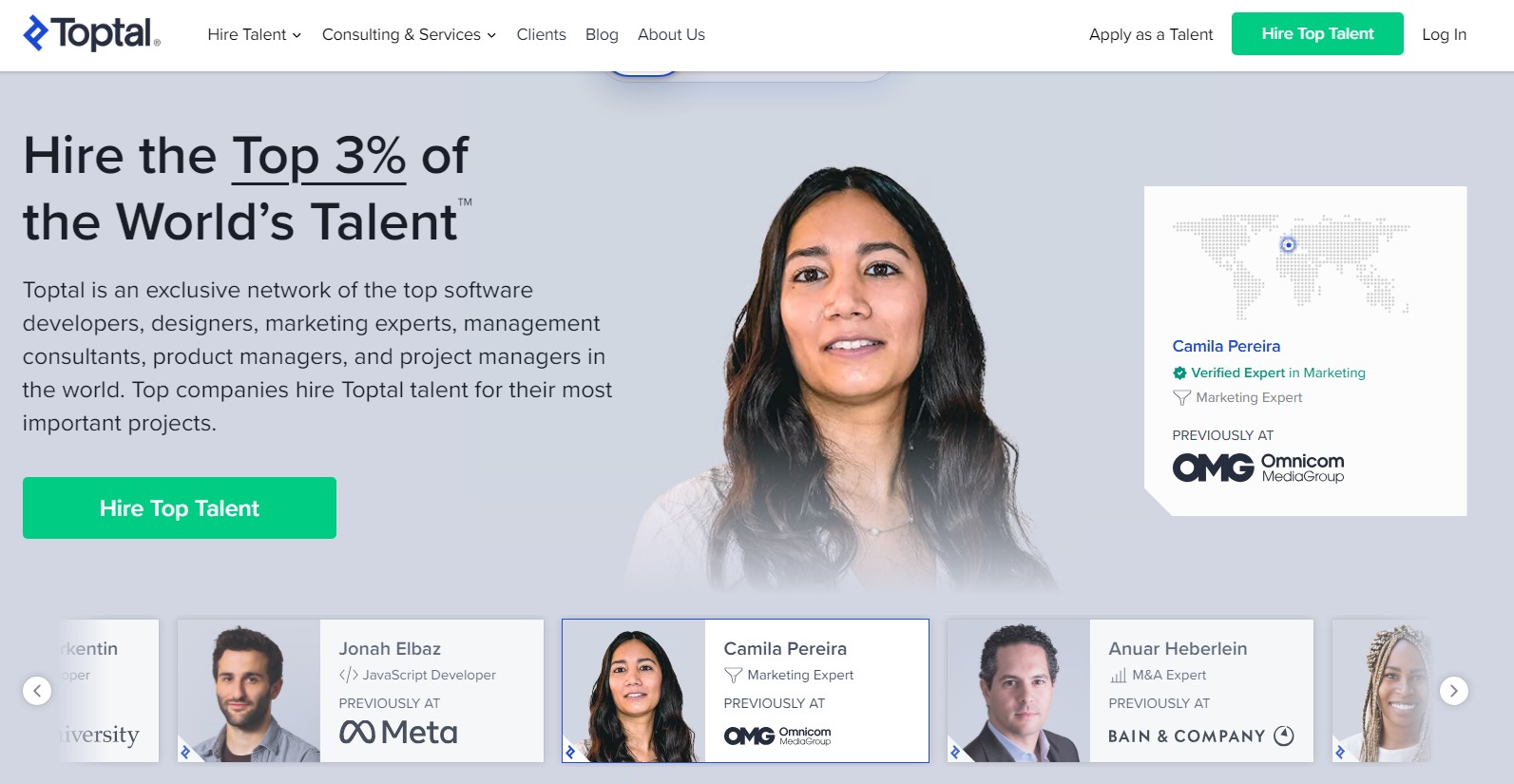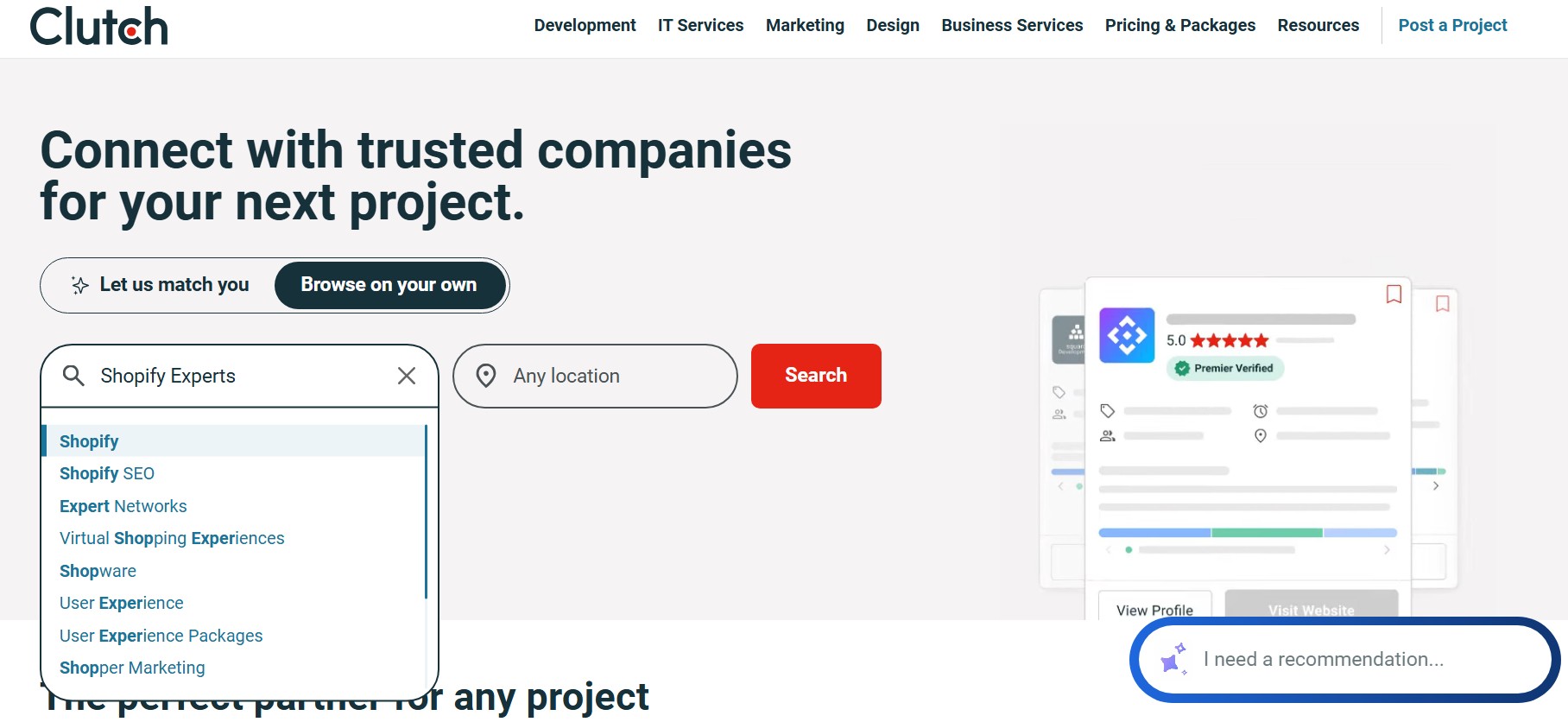Twelve Places To Find and Hire Reliable Shopify Experts
Written and edited by: Dirk

So you’re a Shopify merchant or an e-commerce retailer and you’ve decided you need help. Congratulations! You’ve admitted that you have a problem, and that is the first step in solving it.
Unfortunately, the second step is figuring out how to suss out whether the “expert” you’re about to hire actually knows what they’re doing, or if they just have a really convincing website or Upwork, Fiverr, Freelancer profile and have memorized all the best buzzwords related to online store design, development or marketing. Where you look may matter a bit less than how you evaluate what you find. But certain platforms definitely make the vetting process easier than others. Some vouch more than others. And some are just better at helping you figure out which specialized freelancers or agencies will be best suited to solving your flavor of commerce chaos.
1. Shopify Partners Directory – Find Service Partners
Let’s be fair and kick things off with the Shopify Partners Directory is the wild card because Shopify does some vetting (partners need to meet certain requirements to be listed) but not enough vetting to guarantee quality. Having a partner badge means someone has demonstrated basic competence with the platform. It doesn’t mean they’re good at client communication, project management, or delivering on time and on budget.
The directory’s value for vetting comes from the information it provides, not the judgments it makes. You can see how many stores someone has launched, what apps they’ve built, what certifications they hold. These are useful data points, but you need to interpret them yourself. A partner with 500 launched stores might be excellent or might be a theme installation farm. A partner with 5 stores might be highly selective or might be just starting out.
The review system adds another layer, but reviews are tricky. The angriest clients leave the longest reviews. The happiest clients often don’t leave reviews at all. And agencies absolutely ask their best clients to leave reviews right after successful launches when everyone’s still in the honeymoon phase. Read reviews, but read them skeptically.
What the Partners Directory does well is provide transparency about expertise. You can filter by specific services, see examples of work, and understand what technologies someone works with. It’s particularly useful for finding specialists. Need someone who specifically works with Shopify Plus? Or builds custom apps? Or has experience with headless commerce? The directory can surface those specialists effectively.
2. Bold Match – Find and Hire An Expert Shopify Agency
So Bold Match is relatively new and we take a completely different approach from everyone else. Instead of being a directory or marketplace where you browse through hundreds of expert profiles hoping to stumble upon the right fit, they’ll actually match you with pre-vetted agencies they can vouch for based on your needs. Think of us less like Tinder for Shopify help and more like having a knowledgeable friend, who happens to know every good agency in the Shopify ecosystem.
Match is expert agency-focused rather than freelance-experts-focused. While ShopExperts might connect you with a solo Shopify developer who can fix your theme, Match’ll connect you with full-stack development agencies ready to handle anything from complete rebuilds to ongoing optimization programs. We’re particularly useful when you need more than just technical execution. When you need strategy, project management and multiple specialized specialists all working together.
Bold takes the expert vetting process to another level by actually having humans involved. Radical concept in our algorithmic age, I know. Instead of relying purely on automated matching or self-reported expertise, they have actual matchmakers who evaluate both the agencies and their specialized expertise and merchant needs. The matching process saves a tremendous amount of time. Instead of writing the same project brief seventeen times for different agencies, you fill out one form, have one conversation, with a matchmaker who’ll then present you with two or three Shopify expert agencies who actually fit your company culture, needs, budget, and timeline.
We vet agencies for actual expertise, not just the ability to pay for directory listings. And unlike platforms that make money from transaction fees, Bold Match is genuinely free for merchants. Our business model doesn’t depend on you choosing the most expensive option or rushing into a decision. They’re basically a anti-marketplace nonprofit marketplace, if that makes sense.
3. StoreTasker – Connect With The Top Freelance Talent
Similarly, Storetasker built its entire model around solving the vetting problem for you but is exclusively individual freelancer focused. They pre-screen experts, verify their work history, and actually test their Shopify knowledge. Novel concept, right? Actually making sure someone knows something about Shopify’s tech stack before describing them as a Shopify expert?
The platform specializes in connecting merchants with individual freelancers rather than agencies. This is perfect when you know exactly what needs fixing and just need someone competent to fix it. Their vetting process weeds out the pretenders pretty effectively. They test quote unquote experts on their actual platform knowledge, critically review their portfolios, and try to maintain their quality standards by leveraging customer feedback in a meaningful way.
One thing that’s easy to appreciate about Storetasker’s approach to vetting is that it’s transparent. You can see an expert’s specialties, past project types, and customer ratings all in one place. No digging through seventeen different links to figure out if someone actually knows what they’re doing. They’ve also standardized pricing to some degree, which removes that awkward dance where you’re trying to figure out if someone’s $150/hour rate means they’re excellent or just excellent at overcharging.
The platform handles contracts, payments, and basic project management, which might not sound exciting but becomes very exciting when you’re not chasing down invoices or arguing about scope creep. They’ve essentially removed most of the friction from hiring freelance help, which is no small feat in an industry where “it depends” is the answer to every question.
That said, Storetasker is best for defined projects with clear scope. Need your site speed optimized? Perfect. Need someone to “make your store better”? You’re going to have a bad time. The platform works best when you can articulate exactly what success looks like, because that’s how their experts work best.
4. Lemon io – Top Devs on Demand
Lemon.io has positioned itself as the platform for hiring “pre-vetted senior developers,” which is a very specific promise that they mostly deliver on. Their vetting process is genuinely rigorous, involving technical interviews, code reviews, and soft skills assessment. They claim only 1% of applicants make it through, which might be marketing hyperbole, but the developers who do make it through are consistently solid.
What’s interesting about Lemon.io’s approach to Shopify expertise is that they don’t pretend every developer knows every platform. They actually match you with developers who have specific, proven Shopify experience rather than “full-stack developers who can probably figure out Shopify.” The platform handles all the administrative overhead, including contracts, payments, and even replacement guarantees if someone doesn’t work out.
Their vetting process includes live coding sessions, which is both terrifying for developers and incredibly useful for filtering out people who can talk about code but can’t actually write it. They also verify past work through actual code review, not just “did you work at this company?” verification. The developers tend to be senior-level with 5+ years of experience, which means they’ve already made most of the mistakes you’re trying to avoid.
The downside? You’re paying for this quality control. Rates typically start at $75/hour and go up from there. But if you need someone who can architect a headless commerce solution without turning your codebase into spaghetti, the premium might be worth it. They also offer a no-risk trial period, which is either supreme confidence in their vetting or a recognition that even rigorous vetting isn’t perfect.
5. ShopExperts – Finding Your Next Expert
ShopExperts (still refusing to use a space in their name, still triggering my inner grammar nerd) occupies an interesting middle ground in the platform ecosystem. More curated than a directory, less intensive than Toptal’s gauntlet, more variety than ultra-specialized platforms. They’ve found a sweet spot for merchants who want some quality assurance without the premium pricing that usually comes with it.
Their approach to vetting is pragmatic. They verify expertise through portfolio reviews, reference checks, and technical assessments. Nothing revolutionary, but they actually do it, which puts them ahead of platforms that consider “has a pulse and a laptop” sufficient qualification. They also categorize expertise in ways that make actual sense. Someone who’s great at email marketing might be terrible at technical SEO, and Shopexperts acknowledges this reality.
What makes their vetting process particularly useful is that they update expert profiles based on completed projects. So you’re not just seeing what someone claimed they could do three years ago, you’re seeing what they’ve actually delivered recently. This ongoing validation is surprisingly rare in the platform world, where profiles often become time capsules of optimistic self-assessment.
6. Guru.com – Find and Hire Expert Freelancers
Now Guru is interesting because it basically doesn’t vet anyone. It’s the “you’re on your own, good luck” approach to finding experts. Which sounds terrible, but hear me out. Sometimes the lack of platform vetting forces you to develop your own vetting process, and that’s actually valuable. On Guru, you need to ask the right questions, review portfolios critically, and maybe even (gasp) test candidates with small paid projects before committing to anything substantial. It’s more work, sure, but you learn what actually matters for your specific needs. Plus, you sometimes find genuine experts who just prefer Guru’s lower platform fees. Though you’ll wade through a lot of not-experts to find them.
7. Aufi – Creative and Branding Agencies
Not unlike Breef, Aufi (aka Ask Us For Ideas) specifically focuses on connecting in-need e-commerce brands with branding and creating agencies, which means their vetting process is tailored to performance marketing expertise rather than general Shopify knowledge. They position themselves as retail connecting brands with “growth partners” and evaluate agencies based on their track record with similar brands, their understanding of unit economics, and their ability to scale spend profitably. It’s refreshing to see a platform that understands the difference between experts in the business of “making it pretty” versus experts in the business of “making it profitable.”
8. Toptal – Hire from the Top 3% of Freelance Talent
Toptal promises the “top 3% of freelance talent” which sounds impressive until you wonder how exactly they’re measuring that percentage. Still, their screening process is legitimately rigorous. They test technical skills, communication abilities, and problem-solving capabilities. Getting through their vetting process is purportedly harder than getting into Harvard. Now as a Columbia grad I’m reflexively suss re Harvard but at least Harvard doesn’t make you do a free test project.
For Shopify development, Toptal can connect you with genuinely excellent developers. These are people who understand not just how to make things work, but how to make them work efficiently, scalably, and maintainably. The downside? You’re paying for that quality. Toptal rates start where other “find and hire an e-commerce expert freelancer” platforms’ rates end. But if you need someone who can architect a complex headless commerce setup or build custom applications that won’t fall apart under Black Friday traffic, the premium might really be worth it. In other words. You’ll be paying premium rates but you’ll be getting premium talent for it. Usually.
9. Breef – Discover Leading Creative Agencies
Breef is a bit like a for profit Bold Match only specifically focused on marketing agencies in the e-commerce space. They’ve carved out a niche connecting DTC brands with agencies that understand performance marketing, which is refreshingly specific in a world of platforms that claim to do everything for everyone. If you need help with your Facebook ads, email marketing, old fashioned public relation or even a general growth marketing strategy, Breef can connect you with agencies that actually understand ROAS and aren’t only good at making pretty creative
They evaluate marketing, creative and branding agencies based on case studies, client results, and their understanding of metrics that actually matter. Not just almost vanity metrics like “200% increase in engaged traffic” but real user metrics like contribution margin and LTV vs CAC ratio.
10. Clutch.Co – Marketplace for Finding Business Services
Clutch Co is a platform that tends to treat vetting like investigative journalism. They actually call references. They verify project details. They analyze reviews for authenticity. It’s thorough to the point of being slightly obsessive, which is exactly what you want when you’re about to spend five or six figures on an agency project.
Their B2B focus means the agencies listed tend to be more established, professional operations. These aren’t the freelancers working from coffee shops (not that there’s anything wrong with that). These are agencies with project managers, defined processes, and insurance. The vetting process reflects this, evaluating not just technical capability but business maturity.
11. People Per Hour – Hire Freelancers Online
Then there’s the British platform PeoplePerHour. It sounds like it should be straightforward but somehow manages to be more complex than Brexit negotiations. PPH focuses on hourly and project-based work, which sounds great until you realize their definition of “hour” seems to exist in some alternate dimension where time moves differently. The platform has Shopify experts, sure, but finding them requires navigating through a lot of generalist web developers who list Shopify as one of 47 skills they supposedly possess. It’s particularly useful if you need quick, discrete tasks done. Think “fix this broken collection filter” rather than “rebuild my entire store architecture.” The escrow system works well enough, though their dispute resolution tends to favor freelancers in ways that can be frustrating when deliverables don’t 100 match expectations.
12. RocketDevs – Hire Pre-Vetted Remote Devs
Finally we have (drum roll here) …RocketDevs. They take an interesting hybrid approach, by handling both individual developers and small freelance development teams. Their vetting focuses heavily on communication skills alongside technical capability, which is refreshing given how many technically brilliant web devs can’t really explain what either they’re doing or plan to do in any recognizable human language. But SEOs have the same problem, so I sympathize.
Rocket’s process includes portfolio reviews, technical assessments, and what they call “cultural fit evaluation,” which sounds like corporate nonsense but actually translates to “can this person work with non-technical stakeholders without making everyone cry?”
What sets RocketDevs apart in the vetting game is their emphasis on ongoing support and maintenance capabilities. They don’t just verify that someone can build something; they verify they can maintain and optimize it over time. This is particularly valuable for Shopify stores where “launch and forget” is a recipe for gradually declining performance.
They also handle the timezone juggling for you, which becomes surprisingly important when you discover your developer’s “morning standup” is your 2 AM. Their project management layer adds some overhead to the cost but removes the friction of managing remote developers who might be excellent at code but terrible at status updates.
Expert Vetting Processes That Actually Work
Regardless of which one of the above platforms is best suited to your needs. There are a few standard vetting practices best suited to sifting the real experts and expertise out of good expert marketing.
Look for directly applicable case studies. Which is my fancy way of reminding you that “increased conversion rates by 50%” doesn’t really mean anything. Real experts can explain exactly how they did it, what they tested, what didn’t work, and why their approach was specific to that client’s situation. Vague success stories are usually fiction.
Find out about their failures. Seriously. Ask potential experts about projects that didn’t go as planned. Real experts have war stories and learned from them. People who claim everything always goes perfectly are either lying or haven’t done enough work to have encountered real challenges.
Test their technical knowledge with specifics. Not “do you know Liquid?” but “how would you handle internationalization for a store with different inventory in different regions?” The granularity of their answer and the approach to problems it reveals will tell you more than any certification could.
Check references, but ask the right questions. Don’t ask “were they good?” Ask “would you hire them again?” Ask about communication during problems. Ask what they would have done differently. Ask if the expert delivered what was promised, when it was promised, for the price that was promised.
Start with something small. No matter how good someone looks on paper, start with a small, defined project. It’s better to lose $1,000 discovering someone isn’t right than $10,000. Platforms like Storetasker and Shopexperts are particularly good for these trial projects.
Taking Stock of Your Experts Options
No platform can completely solve every problem for you. Even the most rigorous process can’t predict whether an expert will mesh with your specific communication style, understand your particular challenges, or deliver what you actually need versus what you asked for. But certain platforms make the process significantly easier. Bold Match’s human matching removes much of the guesswork for agency selection. StoreTasker’s pre-vetting and standardized process works well for defined freelance projects. The Partners Directory provides transparency if you’re willing to do your own evaluation. Toptal delivers genuinely excellent developers if you can afford them.
The key is matching the platform’s strengths to your needs. Need a marketing agency that understands performance? Breef or Aufi make sense. Need a solo technical specialist for a specific problem? StoreTasker or ShopExperts have you covered. Need a full-service agency for ongoing support or a full stack development team? Bold Match’s will save you weeks of vetting. Whatever you do, don’t skip doing your own due diligence process because someone’s How This Works page claims to have done it for you. Trust, but verify. Ask uncomfortable questions. Check references even when the platform says they already did. Because at 4AM when your store’s down and your “expert” isn’t responding, it won’t matter which platform you found them on.
The best platform for finding and hiring experts is the one that makes it easiest for you to find and evaluate the right expert for your specific situation. Everything else is just marketing. Now if you’ll excuse me, I need to go review another About Our Tool page promising “unique data insights” and every partnered project thus far has been a “spectacular success” with results that far “exceeded expectations.”
Frequently Asked Questions (FAQ)
What’s the difference between hiring a Shopify Expert versus a Shopify Agency?
Think of it like the difference between hiring a plumber versus a general contractor. Individual experts are perfect when you know exactly what’s broken. Your checkout button disappeared? Your shipping rates are wrong? That’s individual expert territory. They show up, fix the specific thing, and leave. Usually costs less than your monthly Klaviyo bill. Agencies are more like having a whole crew. They’ve got the architect who figures out why your conversion rate is terrible, the developer who can actually fix it, and the project manager who makes sure everyone shows up on time. You need them when your problems are more “our entire customer journey is held together with digital duct tape” than “this one thing is broken.” Bold Match specifically deals in agencies because sometimes you really do need the whole crew. Storetasker is where you go when you just need that one plumber.
How much should I expect to pay for a qualified Shopify Expert?
Good Shopify help costs about what you’d expect good professional help to cost. Individual freelancers typically run $50-150/hour, with the sweet spot around $75-100 for someone who won’t make things worse. The premium platforms like Toptal or Lemon.io start at $75 and can hit $200/hour, but you’re usually getting someone who can solve your problem in half the time.
Agencies are different beasts. They think in project fees, not hourly rates. Small projects start around $5,000, but that’s like “fix our mobile navigation” money, not “rebuild our entire store” money. That’ll run you mid-five figures to low-six figures, depending on how much of a mess you’re starting with. And yes, that seems like a lot until you calculate how much revenue you’re losing every day your store stays broken.How can I tell if a Shopify Expert actually knows what they’re doing?
You can ask them to explain a recent project like they’re talking to their non-tech nerdl friend. Real experts can do this without drowning you in jargon or being condescending. If they immediately start throwing around acronyms and technical terms, they’re either trying to confuse you or they don’t actually understand it well enough to explain it simply. Also, real experts have war stories about things that went wrong. Anyone who claims every project was a “complete success” is either lying or hasn’t done enough work to have hit any real problems yet. I’d rather hire someone who can tell me about the time they accidentally broke checkout during Black Friday and how they fixed it in seventeen minutes than someone who claims they’ve never made a mistake.
Which platform is best for small online retail brand just starting with Shopify?
If you’re doing under $100K annually, you may want to start with Storetasker or Shopexperts for specific problems. They’ve got experts who can fix your immediate issues without requiring you to mortgage your house. The Shopify Partners Directory is free to browse, but it’s like being dropped in the middle of Times Square and told to find the best pizza. Sure, there’s good pizza somewhere in there, but good luck finding it without help. Bold Match can actually work for smaller businesses if you need comprehensive help, because they’ll match you with agencies that take on smaller projects. Just be honest about your budget. There’s no point getting matched with agencies whose minimum project is more than your annual revenue. Save the premium platforms like Toptal for when you’re bigger and have specific technical challenges that justify paying lawyer-level hourly rates.
How long does it typically take to find and hire the right Shopify Expert?
If you use Bold Match, you can be talking to matched agencies within 48 hours, which feels almost suspiciously fast until you realize they’ve already done all the vetting. On Storetasker or Shopexperts, figure a week from “I need help” to “someone is fixing my problem.” That includes posting your project, reviewing proposals, having a conversation where you both pretend you know exactly what needs to be done, and finally pulling the trigger.The Partners Directory is more like online dating. Could take a day if you get lucky, could take a month if you’re picky. You’ll spend a lot of time reading profiles, sending messages that don’t get responses, and having conversations that go nowhere. Clutch is similar but with longer, more detailed profiles that make you feel very adult and professional while still not actually helping you decid
Should I hire locally or consider remote Shopify Experts?
Unless you need someone to physically come to your warehouse and figure out why your inventory system thinks you have negative three thousand units of something, go remote. Shopify is literally built for remote work. Your store doesn’t care if your developer or development agency is in San Francisco or Serbia. Remote gives you access to approximately 10,000 times more experts, including people who actually specialize in your specific problem rather than just being “the local Shopify person.” The only real consideration is timezone overlap. Make sure you have at least a few hours of overlap for communication, unless you enjoy having all your important conversations via email threads that take three days to resolve simple questions.
What red flags should I watch for when vetting Shopify Experts?
Basically any “expert” who immediately suggests rebuilding everything from scratch is either lazy or looking for a big payday. It’s like a mechanic saying you need a new engine when you came in for an oil change. Sometimes you do need a new engine, but it shouldn’t be the first suggestion. Watch out for the “I’m an expert in everything” types. Nobody is equally good at design, development, marketing, and strategy. That’s like claiming you’re a world-class surgeon, lawyer, chef, and race car driver. Jack of all trades, master of none, and probably learned Shopify from YouTube last week. Also, if they can’t show you something they’ve built recently that’s still live and working, that’s concerning. Shopify changes constantly. Experience from 2019 is practically archaeological at this point. And if they get defensive when you ask for references or want to start with a small test project, run. Legitimate experts understand that trust is earned, not assumed.

